
When someone is injured in a car crash, the at-fault driver’s car insurance pays for the defense of their claim. This includes paying for the medical expert the defense uses to testify against plaintiffs in personal injury cases. As plaintiff’s personal injury attorneys, our office frequently sees the same medical experts testify routinely against our clients. Under Virginia’s Collateral Source Rule, a plaintiff cannot introduce the fact that an insurance company is representing the defendant and that the insurance company is paying the medical expert to testify against them. There is good news, though. There is an exception to the collateral source rule that states “exclusion of evidence of insurance is not required when offered for another purpose, such as proof of agency, ownership, or control, or bias or prejudice of a witness.”
A plaintiff can introduce evidence that an insurance company is paying a defendant’s medical expert if the plaintiff can show bias or prejudice of a medical expert by means of a “substantial connection.” Lombard v. Rohrbaugh, 262 Va. 484, 497(2001).
What is the Threshold for a “Substantial Connection” Between an Insurance Carrier and their Expert Witnesses to show bias?
The Virginia Supreme Court addressed this issue in the Lombard v. Rohrbaugh, 262 Va. 484 (2001) case. In the Lombard case, the plaintiff was injured in a car crash caused by the defendant. Allstate insured the defendant, and it paid for all of the costs to contest the plaintiff’s injuries. In that case, Allstate hired a medical doctor to examine the plaintiff and testify at trial that the injuries claimed by the plaintiff were from a pre-existing condition. In discovery, it was learned that Allstate’s doctor did prior work for Allstate and was paid over $104,000 in 1999 and $106,000 in 1998.
The Court in the Lombard case held that Allstate’s doctor being paid over $100,000 for two consecutive years shows a substantial connection that demonstrates bias and prejudice between the insurance carrier and the expert witness. Id. at 497. The plaintiff in the Lombard case was allowed to question Allstate’s doctor about how much money he previously earned from Allstate and that Allstate was paying him for his testimony in Court that day. While interjecting that an insurance carrier paid an expert witness is considered a violation of the Collateral Source Rule, Lombard created an exception to this prohibition when the plaintiff can show a substantial relationship between the insurance carrier and the expert witness that shows bias or prejudice. In Lombard, since the expert worked for Allstate previously, earning over $200,000 over two years, the Court held that such evidence is admissible to show bias and prejudice on the part of the doctor. Id.
The ruling in Lombard is important because it provides a way to demonstrate how an insurance company’s hired-gun medical expert is biased and prejudiced by the substantial relationship between the insurance carrier and their expert. There is no clear-cut rule stating the substantial threshold amount that an expert needs to get paid and with what frequency, but Lombard is just one illustration of how the Virginia Supreme Court allowed impeachment testimony to be admissible.
Graves v. Shoemaker
The Virginia Supreme Court recently expanded on the Lombard case. In Graves v. Shoemaker, 851 S.E.2d 65 (VA 2020), the defendant struck the plaintiff’s car from behind, and the defendant was insured with State Farm. State Farm hired counsel to represent the defendant, and the defendant’s law firm then hired a medical expert to testify that plaintiff’s pain pre-existed the crash. During the deposition of the defendant’s medical expert, it was discovered that he received approximately $793,000 from State Farm over seven years. Still, he did not know State Farm was paying his expert fee in this matter because the check came from the defendant’s law firm. The trial court, distinguishing Lombard, held that the plaintiff could not cross-examine the medical expert regarding payments from State Farm because no “direct relationship” existed between State Farm and the defendant’s medical expert, since the medical expert testified that he did not know State Farm was paying him for this case.
This case was appealed, and the Virginia Supreme Court overruled the trial court’s decision, ordering a new trial to allow the plaintiff to question the defendant’s medical doctor regarding his payments from State Farm. In doing so, the Virginia Supreme Court stated that “An insurer’s payment of a considerable sum of money to an expert for his prior testimony favorable to its insureds can be enough to establish a ‘substantial relationship’ on its own. This was the case here, where Dr. Andrews received nearly $800,000 over seven years from State Farm, an annualized amount similar to what the expert in Lombard received.” Id. at 67. The Virginia Supreme Court further held it was up to the jury to decide whether or not they believed State Farm’s expert regarding whether or not he actually was aware of where the money was coming from. Id. at 68.
The Virginia Supreme Court acknowledged the importance of cross-examining a hired expert from an insurance carrier when a substantial relationship exists. The standard was reaffirmed in the Graves case, where the Court held that a “substantial relationship” does not need to be a “direct relationship” and a law firm cannot act as a middle-person between an insurance carrier and medical expert as a workaround to the Court’s ruling in Lombard. Id. at 67.
The Lombard and Graves decisions are important Virginia Supreme Court decisions for plaintiffs in personal injury cases. They provide plaintiff lawyers the tools to show the jury that certain medical experts are just hired-guns for insurance carriers. Allowing the jury to hear evidence of an insurance carrier paying hundreds of thousands of dollars routinely to the same medical expert provides the jury the opportunity to appreciate that these hired-gun experts are in the pockets of the insurance carriers.
At Curcio Law, with nearly 40 years of experience in personal injury cases, you can be assured that we will do our best to expose bias expert witnesses whenever possible. We treat each client as our most important client and stand behind our firm’s reputation for commitment, compassion, and character throughout Virginia and Washington D.C. Call or text us today at 703-836-3366 or contact us.
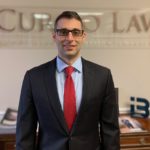
Justin Curcio joined Curcio Law in January 2020. Justin received his J.D. from St. John’s University School of Law in 2015. After passing the Virginia Bar in 2015, Justin was in-house counsel for an insurance defense firm (Allstate/Esurance/Encompass) for over four years before joining Curcio Law. During law school, he worked for the Nassau County District Attorney’s Office and the law firm of Bartlett, McDonough & Monaghan, LLP. Contact Justin at jcurcio@curciolaw.com.


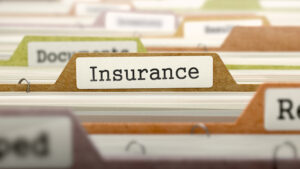

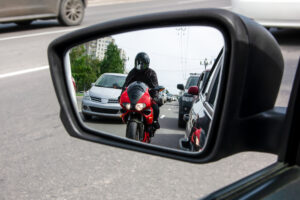
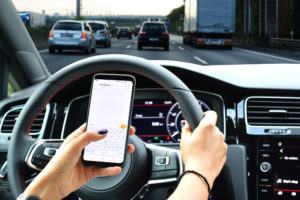



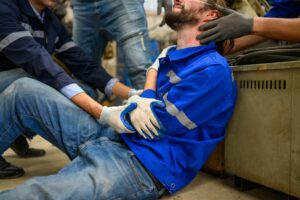




Comments for this article are closed.